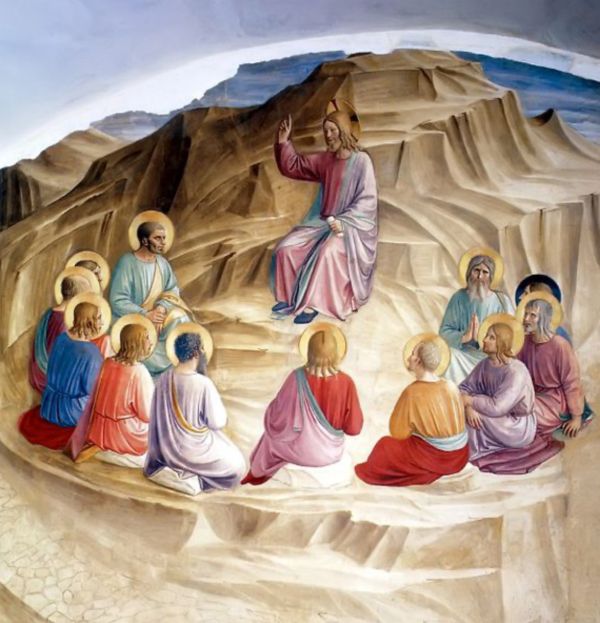Who knows how many times Francis, the Herald of the Great King, in reading this passage from Matthew must have thought that in order to announce the Kingdom of God he would travel the whole earth to bring souls to Christ and to reach the lost sheep of the house of Israel.
"Would you do that?"
Francis must surely have asked himself this disarming question, to which his whole eloquent existence was answered: "Yes, without a doubt!".
For a single sheep of his flock he would certainly have left the others safe in search of the lost one.
"Let us look closely, brothers all, at the good Shepherd who, in order to save his sheep, endured the passion of the cross" (FF 155 - Admonitions).
He, who used to call Brother Leo "God's sheep", would have faced any adversity to find it, and for this he sought martyrdom even before the Sultan of Egypt, to win it for Christ.
The Sources, through the Major Legend, report:
"Francis, the servant of God, with an intrepid heart answered [the Sultan] that he had been sent not by men, but by God most high, to show him and his people the way to salvation and to proclaim the Gospel of truth.
And he preached to the Sultan the triune God and the Saviour of all, Jesus Christ, with so much courage, with so much strength and so much fervour of spirit, as to make it clearly evident that the promise of the Gospel was being fulfilled with full truth: I will give you a language and a wisdom which none of your adversaries will be able to resist or contradict" (FF 1173).
Rich in tenderness and mercy, it is an episode that highlights the shepherd heart of the Poor Man and his concern for the Kingdom of God.
We find in the Sources:
"Once crossing the March of Ancona, after preaching in the same city, and heading towards Osimo, in the company of Brother Paul, whom he had elected minister to all the brothers of that province, he met a shepherd in the countryside, who was grazing his flock of rams and goats.
In the midst of the flock was a single sheep, quietly and humbly grazing on the grass.
As soon as he saw it, Francis stopped, and as if he had had a grip on his heart, full of compassion he said to his brother:
"Do you see that lonely and meek sheep among the goats? Our Lord Jesus Christ, surrounded and hunted down by the Pharisees and Synodites, must have looked just like that humble creature.
Therefore I beseech thee, my son, for love of Him, be thou also full of compassion, let us buy her and take her away from these goats and goatherds" (FF 456).
"Depart, preach, saying that the kingdom of heaven has come near" (Mt 10:7).
Wednesday of the 14th wk. in O.T. (Mt 10,1-7)












